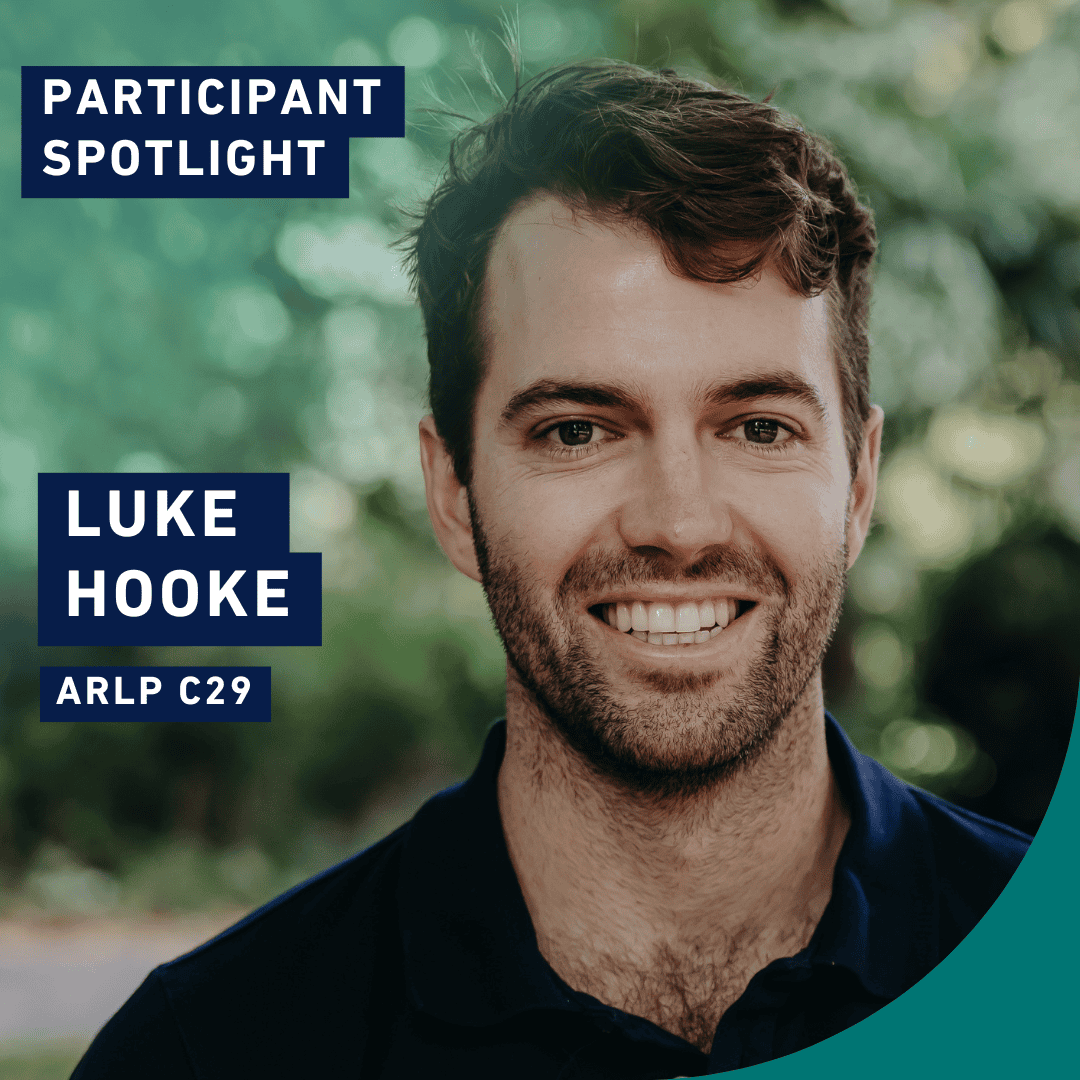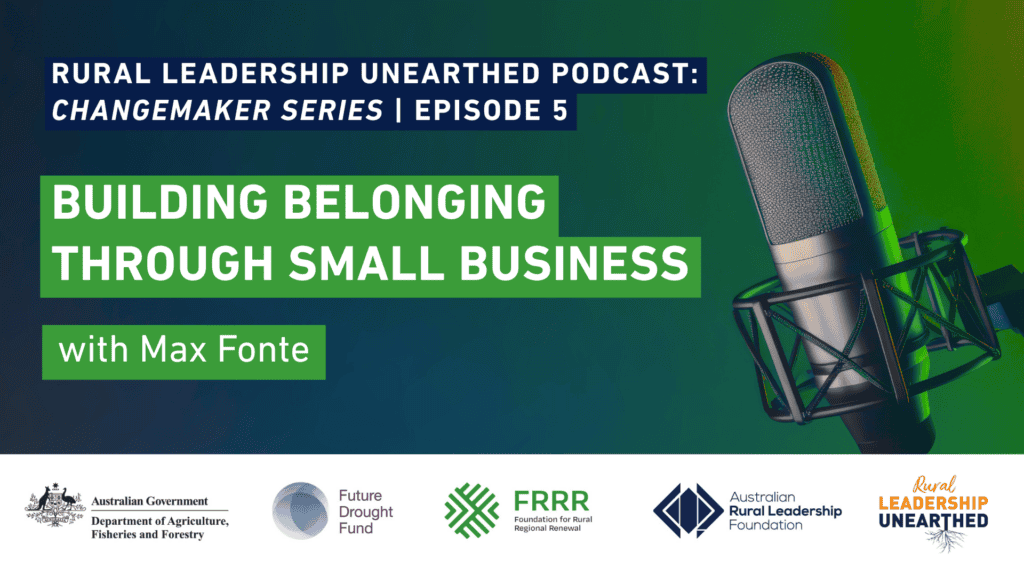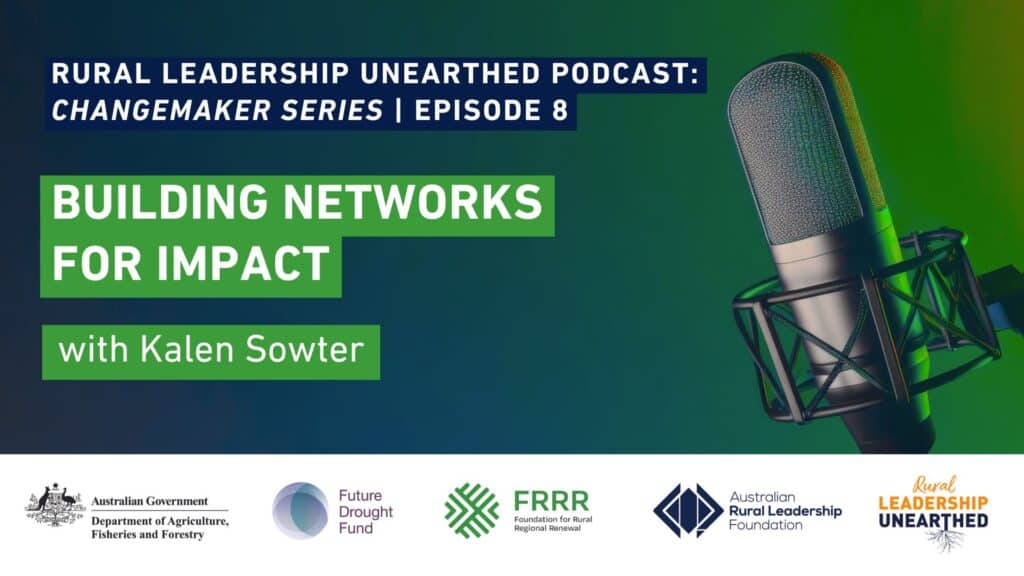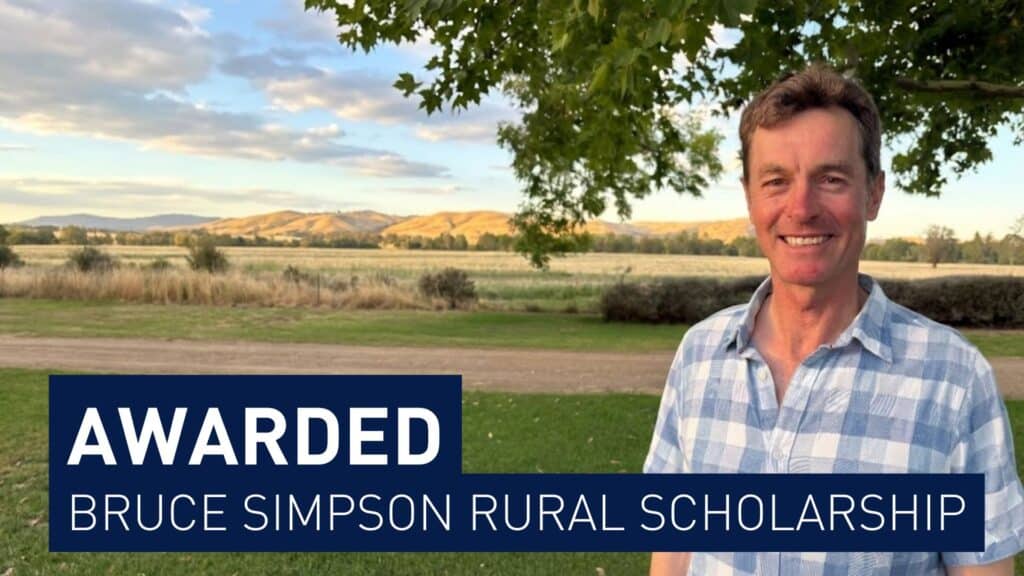Like many others working in the agriculture industry, Central Victorian Luke Hooke is facing complex challenges. One of the hefty hurdles Australia’s growers and producers are contending with right now is climate change. Despite growing expectation from the government, community and supply chains to reduce emissions on farms, there are still very few incentives for farmers to take action.
“There’s a gap between the expectations, ambitions and key drivers of action on farm. So bridging that gap by encouraging investment in reducing emissions on farm is essential to scale decarbonisation in the agriculture industry,” Luke explains.
Luke’s work has taken him full circle from Victoria to Canberra and back, and more recently to Europe as the 2022 recipient of the Australian Rural Leadership Foundation’s John B. Innovation in Agriculture scholarship. After growing up in northern Victoria on a sheep and wheat farm, Luke studied law and politics at university before enjoying stints working in politics in both Canberra and Victoria, then in a policy role at the Victorian Farmers Federation. It’s this rich understanding of both agriculture and government that has set him up perfectly for his current role as the Sustainability, Policy and Program Design Manager for Nutrien Ag Solutions.
Working with a wide range of producers and growers in regional, rural and remote Australia, Luke sees a small cohort of farmers taking action on climate change because their values drive them to make changes. But he views the real challenge as finding ways to encourage the majority of producers to take action on their farms. But how do we collectively accomplish that? Luke believes offering clear financial incentive to make the changes necessary to balance productivity with environmental impacts is a vital piece of the puzzle.
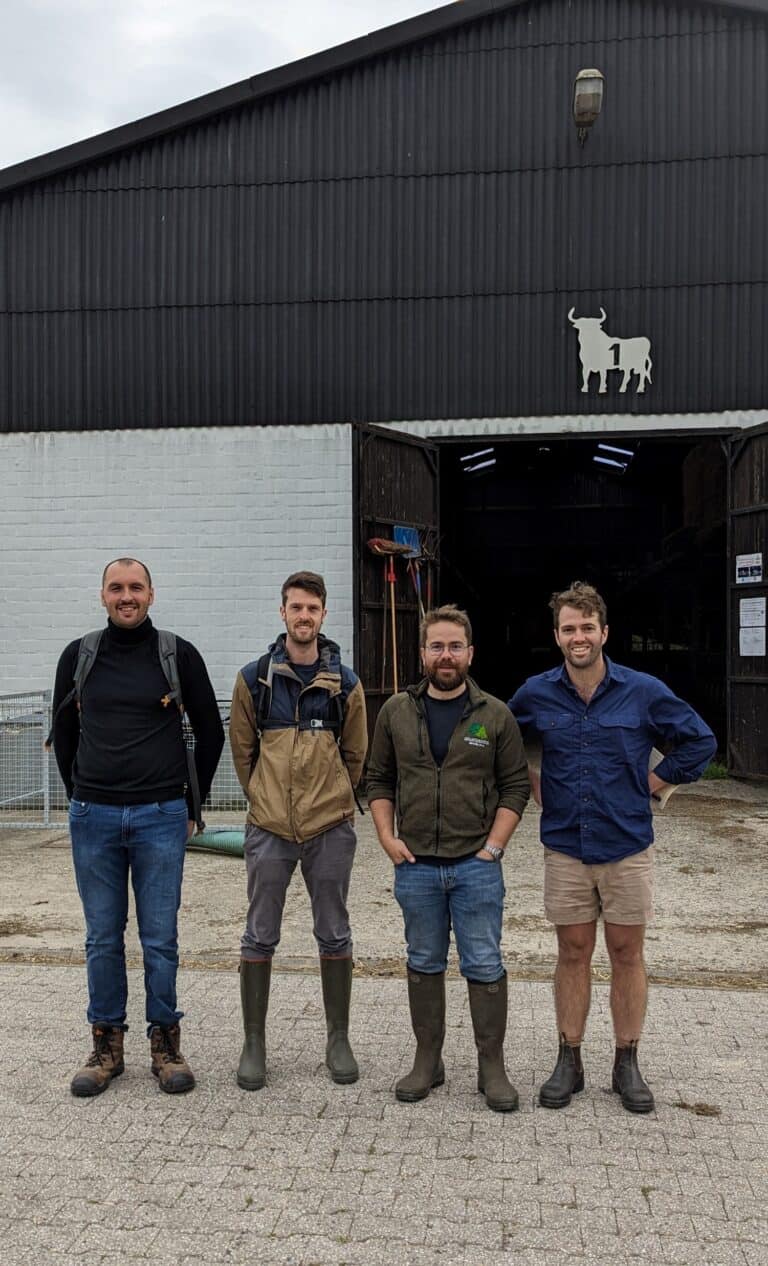
Seeing sustainable supply chains in action
Looking at existing models that work elsewhere is a good way to start trialling solutions without reinventing the wheel. To do this, Luke put the John B. Innovation in Agriculture scholarship funds to good use by embarking on a whirlwind study tour of Europe to explore options for the decarbonisation of agriculture.
Over 2.5 weeks Luke met with farmers, policy makers and researchers in Germany, Belgium, Austria and the Netherlands to gain understanding of how commercial programming influences farmers and their willingness to take action on their farms. He also learned about the scientific barriers to measuring, managing and reporting sustainability on farms, and delved into the many factors influencing and shaping the current political environment in Europe.
“It was very timely because the EU elections were happening while I was there and there was a lot of toing and froing post the farmer protests in late 2023. While I was in Brussels there was also a defensive effort happening against the proposed Danish law to introduce new regulations around methane emissions in the dairy industry, so it was quite a timely trip,” Luke explains.
Although there are many geographical, environmental and cultural differences between European and Australian farms, Luke believes there is much to learn from what is being done on some farms in Europe.
“In Australia we’ve really focused on reducing greenhouse gas emissions on farm, but in order to affect change on farm, you need to look at things holistically. The programming that is holistic has been most successful over there,” Luke says.
While in Europe he visited a diverse range of institutions and farms including the sixth-generation, family-run Damianshof Bayer Forward Research Farm and Max Planck Institute for Plant Breeding Research in Germany, as well as Rimmegen Dairy Farm in the Netherlands, where he got to taste some delicious cheese while seeing how a farm can thrive with a sustainable supply agreement in place.
“The people I met at Rimmegen Dairy Farm were very proud to be part of that program and had really bought into the environmental outcomes from it, even though they were restricted in terms of what they could do on farm,” Luke explains.
After speaking to previous scholarship recipients who shared tips on how to get the most out of the study trip, he decided that being open-minded would be key to getting the most out of the experience.
“I really tried to start the trip without preconceived ideas of what I was going to get out of it. Being purposeful helped me to enter into conversations and experiences open to listening to whatever people had to say,” Luke shares.
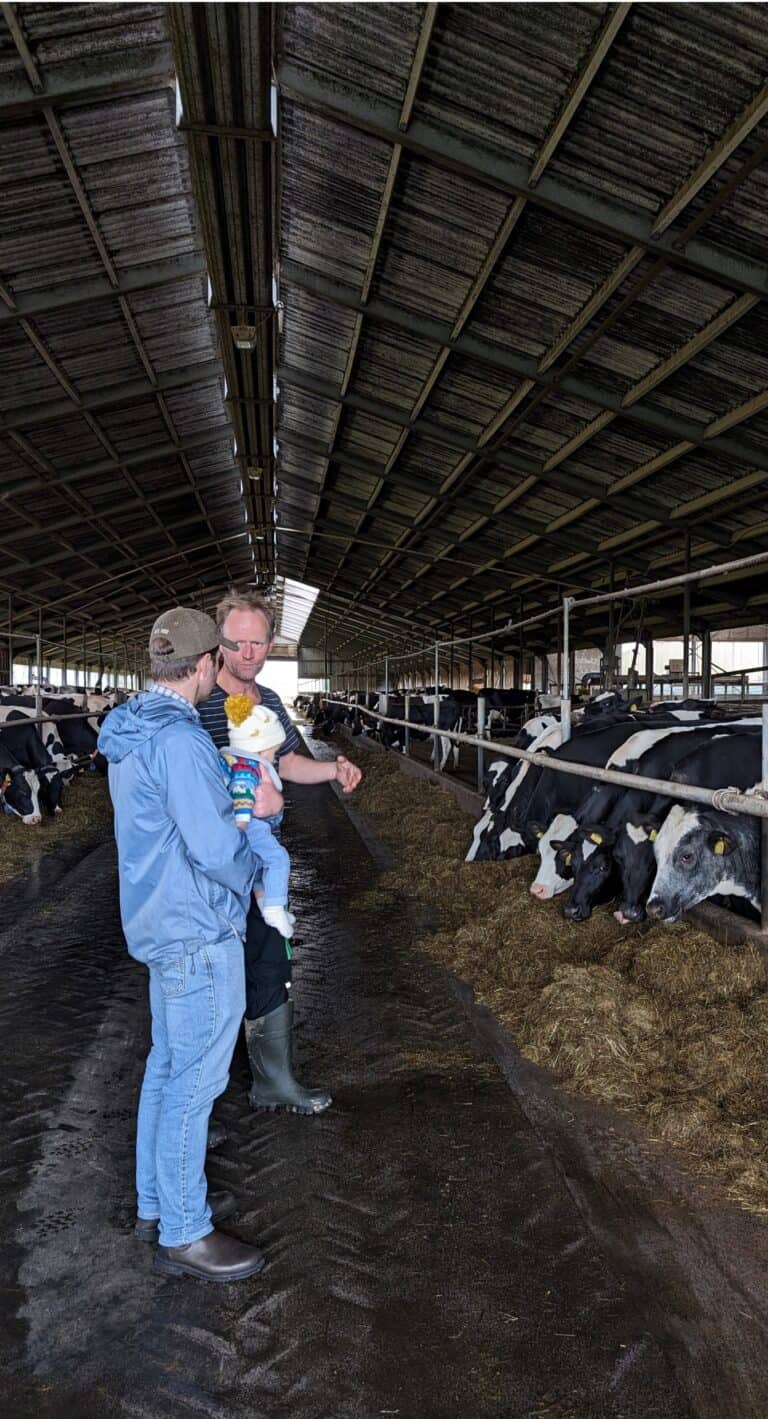
Staying connected on and off farm
Listening to what people have to say is also key to Luke’s role at Nutrien Ag Solutions, whether it’s chatting to growers or meeting with policy makers and researchers. Similarly he is all ears when it comes to hearing about what other Australian Rural Leadership Program alumni have been up to since they completed the 2022 program which included sessions in the Kimberley, Gippsland and New Zealand – something that Luke describes as “a challenging learning experience with a great group of people.”
Since completing the program he’s participated in other events facilitated by the ARLF and continues to stay in contact with people he’s met along the way.
“The ARLF is really proactive in facilitating and fostering networks and connections between alumni of their programs. I maintain good relationships with some participants that I met during the course. There’s a few of us that live around Central Victoria, so we catch up for lunch every couple of months. They are really valuable relationships, says Luke.
He’s also shared what he learned during his stint in Europe with both people he met through the ARLF as well as work colleagues and industry peers. He’s keen to present his findings and ideas at conferences and industry events in the future too.
“The study tour has been hugely beneficial to my understanding of the these really difficult problems that I’m working on. I hope that it will also be beneficial to the ag industry more broadly as I continue to share my learnings with colleagues across the industry.”
“My goal is to contribute to the development of commercial programming that can unlock investment in on-farm decarbonisation. The lessons I learned on the sturdy tour will feed directly into this work” Luke says.
It isn’t lost on Luke that flying across the world to spend time in Europe is a huge, costly undertaking. He shares that being awarded a scholarship to complete the study trip has made a big impact on his professional life. Not only has he learned more about regional advocacy, on-farm sustainability and decarbonisation, he’s also broadened his horizons by making international connections with researchers, advocates and policy experts.
“I’m hugely grateful to the Australian Rural Leadership Foundation and the John B. Innovation in Agriculture Foundation the opportunity. I wouldn’t have been able to do it without the scholarship,” Luke says.
‘Now that I’m home it’s about taking all those learnings, all those new networks and turning them into positive action. For me that’s about rewarding farmers for being good environmental stewards in a way that protects the environment, benefits farm businesses and contributes towards the challenge of combating climate change.”


